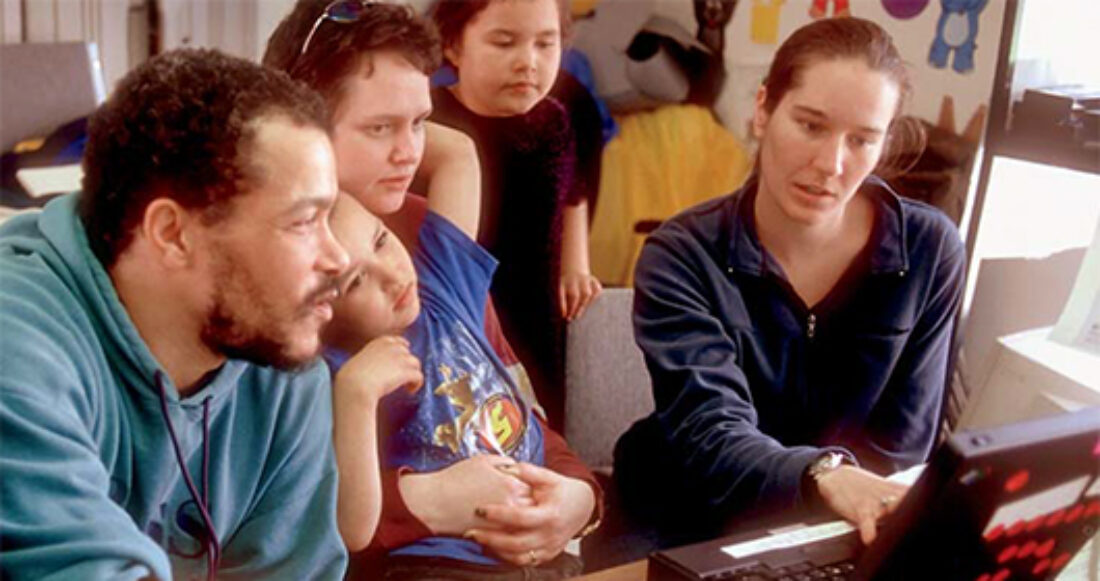Informing and Influencing Public Policy

Several years after the 1996 overhaul of the nation’s welfare system, researchers discovered an unintended consequence: Many low-income people lost their food stamps. Casey Foundation President Doug Nelson played a key role in ensuring that policymakers received data documenting the problem, and the issue was resolved.
The project that made this possible, Assessing the New Federalism, is one of several multi-foundation initiatives Nelson has put his leadership behind to help develop a swift response to policies or proposals that could adversely affect disadvantaged children and families.
Led by the Urban Institute, the project used data from its National Survey of America’s Families to track the effects of new policies such as the welfare overhaul on children and families.
“Because we had set up this capacity, we were able in very short time to capture the data and put it in the hands of researchers who used their analysis to inform policymakers, and policies were changed,” says Michael C. Laracy, Casey’s director of policy reform and advocacy. “Doug led quietly and behind the scenes. He saw emerging political policy changes and put in place exactly the right mechanism to protect kids and families.”
Urban Institute President Robert D. Reischauer says that without Assessing the New Federalism, “the debate about whether this was a constructive redirection of policy would not have been an evidence- and fact-based debate.” The project, which ran from 1996 to 2006, had a “substantial impact,” resulting in modifications to a policy affecting low-income families, he says.
Other initiatives Nelson has pushed for to inform policymaking include:
- The State Fiscal Analysis Initiative, a network of state groups that monitors the effects of budget and tax policies on low- and middle-income families. It is coordinated by the Center on Budget and Policy Priorities.
- The Tax Policy Center, which provides independent analysis and facts about tax policy to policymakers, journalists, citizens, and researchers. It is run by the Urban Institute and Brookings Institution.
The State Fiscal Analysis Initiative has spread from 10 to 32 states, garnering support from multiple foundations. The initiative enabled many state groups to get involved for the first time in state budget and tax issues, doing analysis and forming coalitions to advocate for policies that benefit poor children and families, says Robert Greenstein, director of the Center on Budget and Policy Priorities.
The Tax Policy Center, launched with a small Casey planning grant, now has a multi-million dollar budget and multi-foundation support. It estimates the real-world effects, for various segments of the population, of federal tax proposals or changes.
The Center illustrates how Nelson’s leadership has helped blend research, analysis, demonstration projects, and advocacy to produce “pragmatic, effective ways to actually change policies and change lives,” says Greenstein.
Ron Haskins, a former White House and congressional advisor on welfare issues who co-directs the Brookings Center on Children and Families, says making sure all voices in the debate are heard is a hallmark of Nelson’s approach. One example he cites was a Casey-sponsored conference on welfare, held after the controversial overhaul. “It was exactly a Casey event—perfectly fair, all sides represented, an open forum.”
Also critical has been Nelson’s persistence in ensuring that those most affected by policies play a role in shaping them. “He recognizes that the people, families, youth, consumers, and advocates closest to the work are the best informants about the urgency of the policies needed,” says Sania Metzger, Casey’s director of state child welfare policy.






